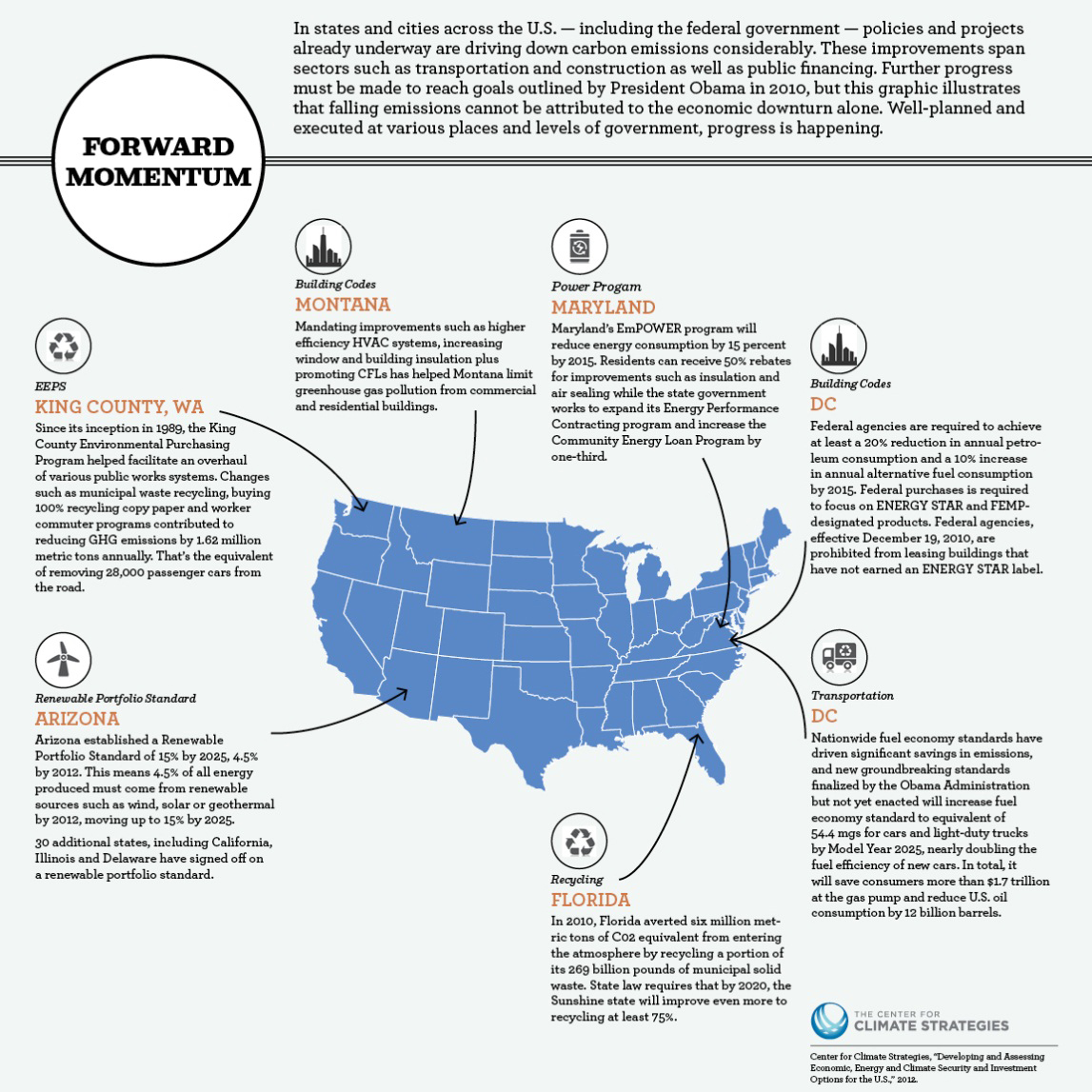Report: Policy responsible for declining carbon emissions
A new study released today by the Center for Climate Strategies (CCS) contends that cheap natural gas and the lagging economy are not the main drivers of declines in U.S. carbon emissions.
 |
|
View the full-size graphic.Credit: Center for Climate Strategies. |
The study concluded that, counted together, eight policies already in place at local, state and federal levels account for more reductions -- 46 percent -- than the recession or natural gas, as projected through 2020.
Although the economic downturn was the single largest reduction driver, energy and transportation policies collectively account for a bigger share, according to the report. Those policies include state renewable portfolio standards, energy-efficiency requirements, car mileage rules, and other actions that affect national energy production and use.
The report analyzed federal data regarding carbon pollution and its equivalents, existing and projected, from 2002 to 2020 and beyond and found:
- Existing carbon policies across cities, states and the federal government -- from building codes to automobile and building energy efficiency standards -- combined with downturn in the economy and cheaper gas, will reduce the growth of greenhouse gases by 23 percent by 2020.
- Combined, existing policies, the economic slowdown, and the switch to gas will lead the U.S. 69 percent of the way to President Obama's 2020 reduction goal.
- By 2030, eight sustainable energy and transportation policies will account for an increasing share of expected emission reductions, rising from 46 percent in 2020 to 58 percent in 2030.
- When it comes to energy-focused policies alone, state and national incentives and policies to switch to renewable energy will have a bigger pollution reduction impact (7 percent by 2020) than fuel switching (6 percent by 2020).
"Our study shows that actions from the city to federal level are working; these programs are already lowering greenhouse gas emissions and helping better protect our country from climate change-related impacts," said Tom Peterson, CCS president and CEO and co-author of the report.
"These are not far-off solutions still being tested in a lab or on a computer. These are practical approaches that not only help fight climate change but also create new markets and investments, protect our national energy security, and make communities safer and more sustainable," he added.
The study also assessed 20 new policy steps to close the greenhouse gas emissions gap and increase economic and energy security across the board, including scaling up programs such as demand-side management, increasing public transit and transportation efficiency, and improving forest conservation and restoration.
For more:
- download the
report
Read more: Report: Policy responsible for declining carbon emissions - FierceEnergy http://www.fierceenergy.com/story/report-policy-responsible-declining-carbon-emissions/2012-11-19#ixzz2CgtzmOOj
Subscribe: http://www.fierceenergy.com/signup?sourceform=Viral-Tynt-FierceEnergy-FierceEnergy